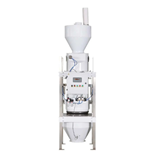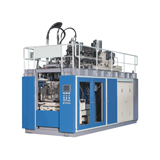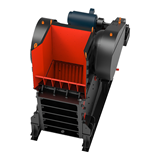KPMG
The report from the Economist Intelligence Unit (EIU), commissioned by KPMG International, highlights that many Western countries are investing too little in R&D to compete on the basis of innovation and technology and to protect themselves from intense price pressures.
Australia lags behind the rest of the world with business expenditure on R&D as a percentage of Gross Domestic Product (GDP) resting at 0.89 percent in 2003-04 compared to 2.36 percent in Japan, 1.79 percent in the US and 1.24 percent in the UK.
According to KPMG’s Industrial Markets Partner, Ian Dinnison, this low level of investment in R&D may leave Australian industries vulnerable to commoditisation and hence competition from low-cost centres.
“Continuous innovation will be a primary defence against increasing competition from China, India and other emerging market players. The EIU’s research indicates that most manufacturers will have to take a long-term perspective on investment decisions and carve out areas of expertise where they can command high-end prices. Companies must also focus on ensuring that product innovation is tightly connected to customer demands. New products must be brought to market with greater speed and efficiency.”
“Despite what the headlines say, Australian manufacturers still have reasons to be optimistic. There will always be new competitors in our domestic markets as well as intense competition in foreign markets. But the growing wealth in many countries in the region offers substantial opportunities to expand. However, unless there is the ongoing investment in product and process development, these opportunities will be missed,” said Dinnison.
The survey highlights that the Australian experience is not unique, manufacturers across the world are trying to work out how to respond to the challenges from low-cost countries.
“Australian businesses must now consider how they will combat this challenge, they cannot rely solely on government or unions to act, they must take the initiative themselves. Some will become global design centres, distributing product manufactured overseas, concentrating on product development and supply chain expertise. This seems to be the model for the textile, clothing and footwear (TCF) and electrical consumer product industries. Some will focus on import competitive products, other will need to be businesses that are truly competitive on a global basis.”
Based on their survey of 232 senior industry executives, the EIU state that just 26 percent of respondents hope to improve profitability by becoming more innovative over the next three years. That response rate made it only the sixth most popular response, trailing well behind stronger demand, better asset utilisation and increased availability of low-cost suppliers.
When asked by the EIU to rank the biggest challenges facing their companies, 45 percent of respondents cited the difficulties of acquiring employees with the right skills, making this the second most pressing challenge - behind controlling costs.
Dinnison commented: “The survey has helped to highlight that if companies are to improve their R&D output, recruiting and retaining key personnel will be an important factor. It is in this area that countries like Australia, Western Europe as well as Japan and North America will need to work hard if they are to retain their attractiveness as locations for mechanical and electrical engineering.
By contrast, India and China offer large numbers of engineering graduates who cost a fraction of the amount to hire than their counterparts in developed economies. The dearth of these skills in the West is likely to become of increasing concern and needs to be addressed urgently. Failure to meet this challenge may only accelerate the loss of high-value manufacturing from developed to developing economies.”











